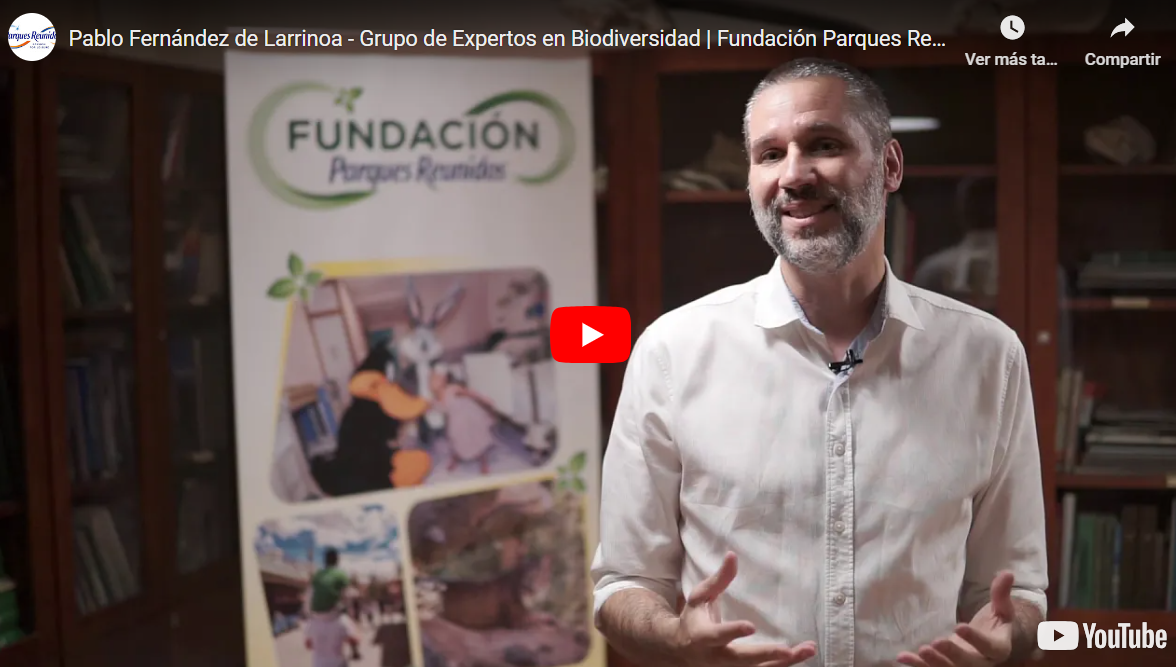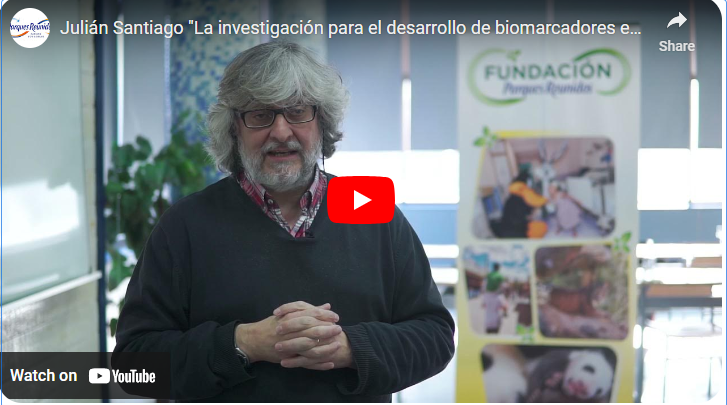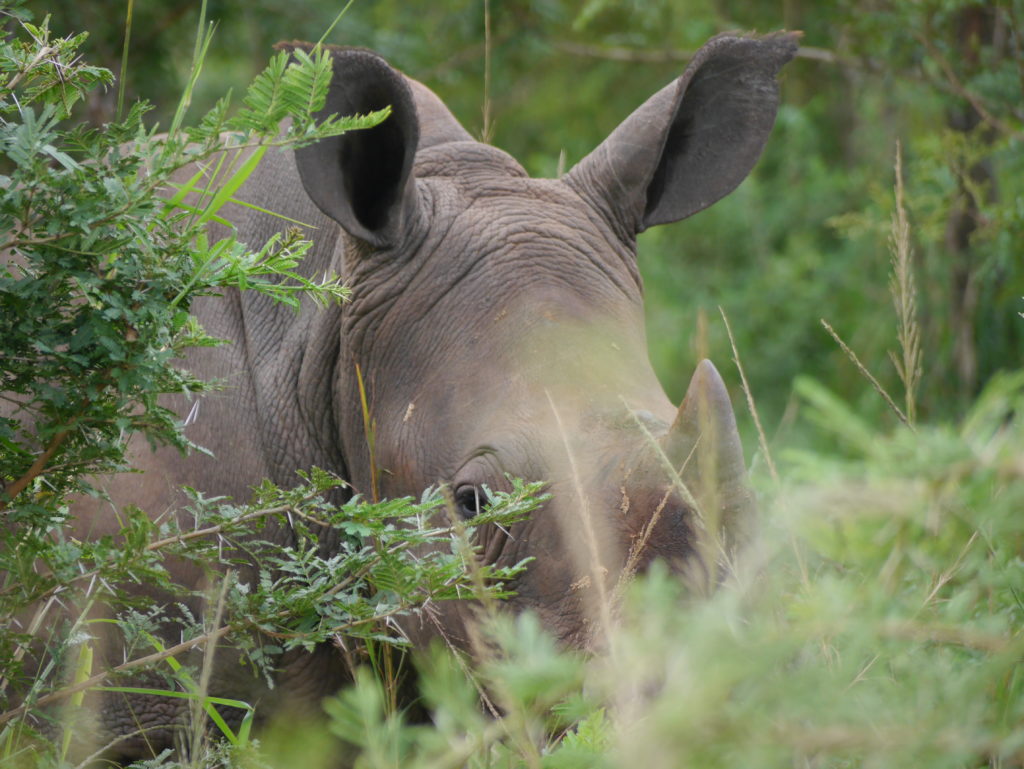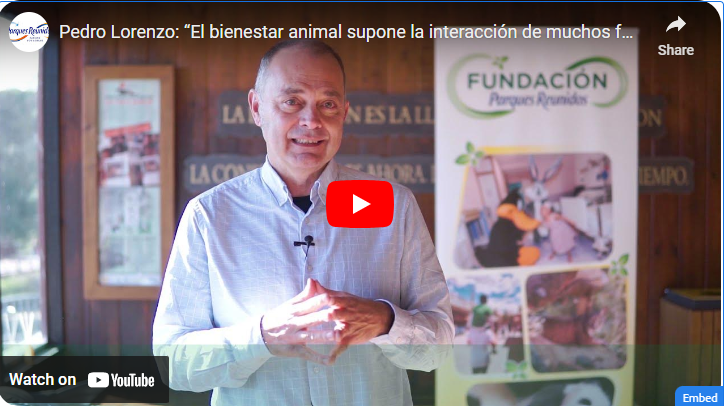For Rodríguez de la Fuente, zoos are important for issues such as reproduction under human care, reintroduction of species that risk extinction and scientific research. Yet, zoos give, above all, “the opportunity to see species up close and to recreate bonds with nature, which is ever more suppressed by a increasingly urban society. In this context, the natural space provided by the existence of zoos becomes a stronghold of this face-to-face connection with animal species”.
“An animal’s gaze can make a child fall in love and can awaken the call of nature within him. From that standpoint, one can educate and raise awareness, which a common task in zoos. The ambassadors of life live in our zoos, and the improvents these facilities are experiencing guarantees animal welfare, as well as many other aspects.”
Odile Rodríguez de la Fuente
Odile Rodríguez de la Fuente is a member os the multidisciplinary focus group hosted by the Parques Reunidos Foundation wich is working to establish animal welfare indicators tha would improve task execution in zoos. According to Odile, the change has to be “a deap change, and that requires leaders to be educational and to spread the word as much as possible about the thruth about climate change. That is the stage at which zoos must reclaim their role as conservation cornerstones, because for “conservation to be effective in zoo, animal welfare is paramount”.
For all these reasons, animal wellbeing indicators must take three main points into consideration, according to Odile Rodríguez de la Fuente: health, longevity and reproduction. In addition, she adds that “if we want to learn about the normal behavior of our animals in natural habitats and contribute to in situ conservation projects, we must work for normal animal behavior within zoos”. This means preventing stress, which affects animal health, reduces longevity, and causes infertility.
Therefore, The Parques Reunidos Foundation is promoting the focus group iniciative aiming, not only at inspiring constructive discussions about these topics so that zoos can fulfill their role in conservation, education, and reseach, but also to establish universal indicators that would contribute to improving the quality of life of animals worldwide. The focus groups seeks to become a focal point of the exchange between society and nature, so that it may help to adapt our fauna to the current environmental situation.
THE GROUP’S MEMBERS
The Focus Groups is formed by the follwing experts:
- Enrique Alonso, Permanent Member of Spanish State Council; UNESCO Chair on Spatial Design and the Environment; Honorary Researcher at the Franklin-UAH Institute and the Monterey International Institute of California ;
- Alberto Díez, InfoZoos spokesperson ;
- Pablo Fernández de Larrinoa, Director of the Fundación CBD-Hábitat Mediterranean Monk Seal Conservation Program ;
- Jesús Fernández, President of the Fundación Parques Reunidos ;
- Luis Mariano González, head of Conservation Action at the General Sub-directorate on Biodiversity and Natural Environment, Ministry for Ecological Transition;
- Pedro Lorenzo, Dean of the Veterinary Science School, Universidad Complutense de Madrid;
- Xavier Manteca, Professor, Animal and Food Science Department, School of Veterinary Science of the Universidad Autónoma de Barcelona, who will be the group’s moderator;
- Odile Rodríguez de la Fuente, General Director and President of the Fundación Félix Rodríguez de la Fuente;
- Julián Santiago, Research Professor at the Instituto Nacional de Investigación y Tecnología Agraria y Alimentaria (INIA);
- Andrea Torres, biologist for InfoZoos;
- Felipe Vilas, President of the Madrid Official College of Veterinarians.




